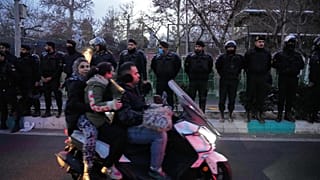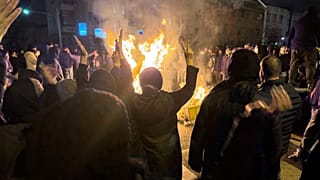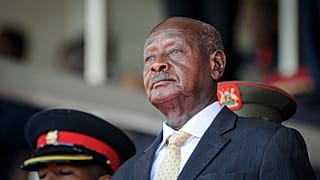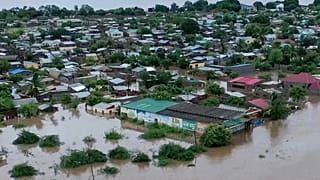Iran
France, Germany and the United Kingdom started a process Thursday to reimpose sanctions on Iran.
The mechanism, termed “snapback” by the diplomats who negotiated it into Iran’s 2015 nuclear deal with world powers, was designed to be veto-proof at the U.N. and is likely to go into effect.
It would again freeze Iranian assets abroad, halt arms deals with Tehran and penalize any development of its ballistic missile program, among other measures, further squeezing the country’s reeling economy.
The European move starts a 30-day clock for the sanctions to return, a period that likely will see intensified diplomacy from Iran, whose refusal to cooperate with the International Atomic Energy Agency’s inspectors started the crisis. The U.N. General Assembly in September will also likely see Iran as a top focus.
France and Germany's foreign ministers suggested they viewed “snapback” as a way to spur negotiations with Tehran.
"This measure does not signal the end of diplomacy: we are determined to make the most of the 30-day period that is now opening to engage in dialogue with Iran,” French Foreign Minister Jean-Noël Barrot wrote on the social platform X.
Iran's Foreign Minister Abbas Araghchi said in a statement that he decried the move as “unjustified, illegal, and lacking any legal basis" in a call with his European counterparts.
“The Islamic Republic of Iran will respond appropriately to this unlawful and unwarranted measure,” he said, without elaborating.
Iran appears resigned
Iran initially downplayed the threat of renewed sanctions and engaged in little visible diplomacy for weeks after Europe’s warning, but has engaged in a brief diplomatic push in recent days, highlighting the chaos gripping its government.
In Tehran on Thursday, Iran’s rial currency traded at over 1 million to $1. At the time of the 2015 accord, it traded at 32,000 to $1, showing the currency’s precipitous collapse in the time since. The rial hit its lowest point ever in April at 1,043,000 rials to $1.
Outside a currency shop in Tehran, resident Arman Vasheghani Farahani told The Associated Press that “many of us feel a deep sense of uncertainty and desperation” over the currency collapse sparked by the nuclear tensions.
“Should we keep trying, or is it time to give up? And how long will this situation last?” he asked. “No official seems willing to take responsibility for what’s happening.”











00:51
Abdolnasser Hemmati reappointed as Central Bank of Iran governor
01:48
Iran and IAEA sign agreement amid growing tensions
Go to video
Tragic bus crash in Afghanistan claims 79 lives
01:03
Iran says open to nuclear talks but no stop to enrichment
00:28
Iran launches missile attacks on US base in Qatar
01:35
US strikes 3 Iranian sites, joining Israeli air campaign